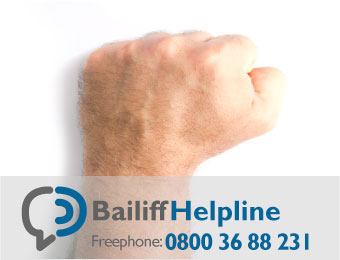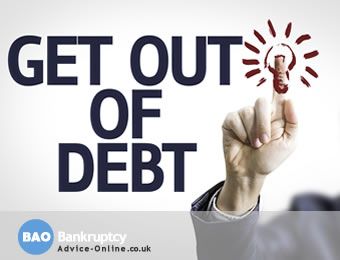Collect Services
Bailiff Helpline
0800 368 8231
Collect Services Bailiffs
Have you received a letter from a Collect Services bailiff saying they are about to visit your house?
Do you need advice & help on how deal with Collect Services Enforcement?
Are they chasing you for Council Tax, Business Rates or Benefit Overpayments?
Don't panic, Below you'll find out everything there is to know about how to deal with Collect Services bailiffs, what to do if a Collect Services bailiff is at your house, how to stop a bailiff taking your car.

What should I do?
IMPORTANT!!! If a Bailiff is at your door, DO NOT LET THEM IN! You do not have to let them in your house no matter what they tell you. If the bailiff is at your door, or has left a calling card, call the Bailiff Helpline on 0800 368 8231 immediately.
If you have received a letter or calling card from a bailiff claiming that you have an outstanding debt or if you’ve been visited by Collect Services bailiffs the best thing to do is to call the Bailiff Helpline immediately.
We can provide advice, free of charge. We will speak to the Bailiff on your behalf, and can arrange for a temporary hold on Bailiff action, whilst the problem is sorted out.
If you want more help on dealing with Collect Services Enforcement, call the FREE Bailiff Helpline on 0800 368 8231 (freephone, including all mobiles) or take the online debt test and find your best solution.
Who are Collect Services Enforcement?
Collect Services Enforcement Agents (previously called bailiffs) hold a certificate, granted by a judge at the county court, which allows them carry out enforcement action.
They are regulated by the Ministry Of Justice
Collect Services provide Enforcement and Debt Collection Services for local authorities in England and Wales.
They collect Council Tax, Business Rates, Parking, Commercial Rent, Overpaid Housing Benefit and other debts.
What can Collect Services Bailiffs do?
They have the legal power to remove and sell your belongings to pay a debt you owe. In most cases, bailiffs only get involved after your creditor has taken you to court.
If you let a bailiff into your home they can take:
They can not take:
Proving that the items don't belong to you isn't always easy.
Call the Bailiff Helpline on 0800 368 8231 if you need help with this.
If Collect Services have taken your goods.
If the bailiff has taken your goods you can still get them back, but you will have to:
- Settle your debt before the goods are sold by Collect Services.
- Make an agreement with your creditor and get them to ask Collect Services to return your goods.
- You buy the goods back yourself.
- The Collect Services bailiff did not follow the coreect procedure when they took your goods.
Can Collect Services Bailiffs take my car?
Cars are one of the most popular things for a bailiff to seize. This is because they usually have value, are easy to seize and also for the bailiff to sell on.
Bailiffs are allowed to take cars and vehicles, but they have to follow certain rules.
- A Bailiff can only take control of a vehicle that's actually owned solely or jointly by the debtor.
- A car belonging to a third-party cannot be taken. So if your car is on a HP agreement they can not take it.
- A car displaying a Blue Disabled Badge cannot be taken.
Alternatively, the bailiff may leave the car with you as long as you to sign a controlled goods agreement, this means you promise that you won't try to sell or get rid of the vehicle and agree to a payment plan. If you don't keep to the terms of this repayment plan, the bailiff will come back and seize your vehicle.
Call the Bailiff Helpline on 0800 368 8231 if you need help.
The bailiff has clamped my car, can I remove it?
No, do not remove the clamp from your vehicle. Under section 68.1 of Schedule 12 (TCEA 2007) it is a serious offence to remove a wheel clamp or to obstruct the bailiff from clamping or removing the vehicle. You risk being fined or sent to prison for a term not exceeding 51 weeks!
Top Tip: Hide your car
If you don't want your car to be taken, you can park it on private land, such as a friend's driveway or a car park. A bailiff can take your car if it is parked on a public highway, but they can't take a car parked on private land belonging to someone else without a court order.
What can they charge?
How much the bailiff can charge will depend on your situation.
The fees that a Collect Services bailiff/enforcement agent can charge are outlined under the Taking Control of Goods (Fees) Regulations 2014.
There are three separate stages of baliff action, called compliance, enforcement and sale of goods.
Collect Services are therefore allowed to charge a fee for each stage of the process of taking action against you.
However, the bailiff fees can only be charged once for each stage of the process, no matter how much work was involved in that stage of the process. So even if a bailiff had to visit your home four times during the enforcement stage, they can only charge the enforcement fee once.
The fees can quickly add up though, and we think the £75 fee for issuing the "enforcement notice", which is basically just a standard letter, is excessive.
For each stage the bailiffs can charge two fees, as detailed in the table below:
| Stage of collection | Bailiff Action | Fixed Fee | % Fee (over £1500 only) |
|---|---|---|---|
| Compliance | Sending you an enforcement notice through the post, requesting payment. | £75 | 0% |
| Enforcement | Visiting your home or business premises to take control of goods. | £235 | 7.5% |
| Sale of Goods | Removing and selling your goods/belongings. | £110 | 7.5% |
So if you have received an "enforcement notice" from Collect Services through the post, don't ignore it. If you do not contact them they will proceed to stage two and charge you another £235, when they send a bailiff to knock on your door.
It may not be too late for you to negotiate a payment scheme with a bailiff on your own.
However, we suggest that you contact us immediately for free advice, we can easily deal with Collect Services for you.
Call the Bailiff Helpline on 0800 368 8231
Need Help With Collect Services Bailiffs?
If you want more help on dealing with Collect Services Enforcement, call the FREE Bailiff Helpline on 0800 368 8231 (freephone, including all mobiles) or take the online debt test and find your best solution.
Other charges they can make.
As well as the fixed fees and percentage fees shown above, you may also be charged by Collect Services for disbursements. These can include the following:
- Storage costs for your belongings after they were taken away by Collect Services.
- Locksmith costs.
- Any court fees Collect Services had to pay if they needed to apply to the court at any point.
- Auctioneer's costs if they have sold your goods, including commission of up to 15 per cent of the selling price, out-of-pocket expenses and advertising the sale of your goods.
For all expenses charged by Collect Services, you have the right to see receipts and other evidence for the costs they have added to your bill.
Can I avoid bailiff fees by paying the Council or Magistrate Court direct?
The short answer to this is "NO".
Once a warrant has been passed to the enforcement agency and the enforcement agency has issued a "notice of enforcement", the bailiff fees becomes legally due and the ‘amount outstanding’ will include the bailiff fees.
Collect Services Bailiffs Contact Details:Please note that we are not associated with Collect Services in any way. The information on this page is provided to help people contact their creditors.
If you’re finding it difficult to make your monthly payments to Collect Services you may need help looking at your budget and managing your debt. We deal with bailiffs all day, every day and we know exactly how to approach them. If you’re struggling to repay a debt and would like us to deal with Collect Services on your behalf, or simply need a bit of advice, just click on the STOP BAILIFFS NOW button below.
If you want more help on dealing with Collect Services Enforcement, call our FREE Helpline on 0800 368 8231 (freephone, including all mobiles) or take the online debt test and find your best solution.
More Debt Advice:
Which Debts Are Not Included In Bankruptcy?
ReadMost people think that if they go bankrupt, it will get rid off all of their debts. However, this is not always the case. You may still be liable for some debts...

How Long Does It Take To Go Bankrupt?
ReadSo how long does it take to go bankrupt? Bankruptcy can be implemented very quickly but it can vary depending on your individual circumstances...
What Is A Debt Relief Order? (DRO)
ReadWondering if you can get a debt relief order, sometimes referred to as DRO? This section explains what a debt relief order is, and the steps you need to take to apply for a debt relief order...






